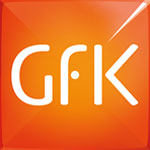
Not least since the Fukushima reactor disaster has German consumer awareness once again turned the spotlight on green issues. Since August 2011, the GfK Global Green Index has been measuring the central issues relating to environmental awareness. In addition to general attitudes, the survey also shows whether and to what degree consumers are prepared to carry the cost of eco-friendly habits. The individual findings have been summarised in the GfK Global Green Index, the most recent GfK analysis of the environmental awareness of the German population.
When buying, the majority of the German population does not check whether a product has been manufactured in an environmentally compatible process, or if it carries the corresponding organic or eco-friendly seals. However, one in two Germans signalled a willingness to pay a higher price for products produced in a more eco-friendly way or whose use is less detrimental to the environment than other products.
The ramifications of Fukushima and the energy-political debate it sparked in Germany are reflected most in the statements made concerning this issue. More than 70% of Germans are currently prepared to accept an expansion of the German power grid in their immediate vicinity, but only if this contributes to the end of nuclear power plants. In principle, as many as 80% of Germans are even of the opinion that the use of nuclear power plants cannot be justified in the long run, on account of the still unresolved problem of what to do with the spent radioactive material. Beyond this, the frequently mentioned issue of a secure power supply is an argument in favour of nuclear power accepted only by the minority. In fact, on the contrary, virtually 70% believe that renewable energy sources, such as solar and wind power, could entirely replace nuclear power.
In the matter of separation of waste materials, by their own admission, German behaviour is generally exemplary. More than 80% of those surveyed said that they were highly motivated separating their waste and put it into the right bins for disposal or take it to a recycling plant. Again, more than 80% are already making a conscious effort to cut down on waste from the outset by buying refillable packs. However, only one in three Germans said they were prepared to pay higher charges for environmentally compatible disposal of domestic, bulky and special waste.
In Germany, the willingness to undertake energy efficiency measures, such as installing heat insulation, is strongly contingent on the additional costs payable. A total of 80% of Germans would only be prepared to institute such measures if they were economically viable. When buying energy efficient domestic equipment, at least 60% said that in general, they would only be prepared to pay more if this would reduce their own energy consumption.
Even in individual areas like mobility and tourism, considerations of cost and use play a decisive role for consumers. On the question of whether the use of public transport might be promoted, for example, by raising car tax, as many are currently in favour as are against. Yet one in three Germans quite often leave their cars at home and use alternative means of transport. However, when booking vacations, green issues are not yet uppermost in the minds of most Germans, with just 20% saying that they would choose their destinations according to whether or not they practised environmentally sustainable tourism.
Only a minority of consumers are actively committed to environmental protection. Just 14% of Germans give regular support to nature protection organisations, with 15% actively engaged in environmental protection projects in their region.
The individual findings for all the subject areas have been compacted into index values. A glance at the current indicators shows that the environmental awareness of German consumers differs greatly from one subject area to another. While awareness of green issues in terms of energy supply and waste disposal/recycling is above-average, it is below average in the areas of consumption, domestic energy, commitment to environmental protection and tourism. The index rating for mobility records average environmental awareness, so that the views for and against individual criteria are currently balancing each other out.
The GfK Global Green Index is composed of individual indices aggregated into one overall value. Since the individual indicators vary greatly, it follows that in spite of some positive individual ratings, there is still significant potential for improvement.
These findings are extracted from the survey conducted by GfK and the GfK Verein. They are based on approximately 2000 personal interviews with private households conducted in August and October 2011.

The GfK Association was established in 1934 as a non-profit organization for the promotion of market research. Its membership consists of approximately 600 companies and individuals. The purpose of the Association is to develop innovative research methods in close cooperation with academic institutions, to promote the training and further education of market researchers, to observe the structures and developments in society, the economy and politics that play a key role in private consumption, and to research their effects on consumers. Survey results are made available to the membership. The GfK Association is a shareholder in GfK SE.
Go to: http://www.gfk.com